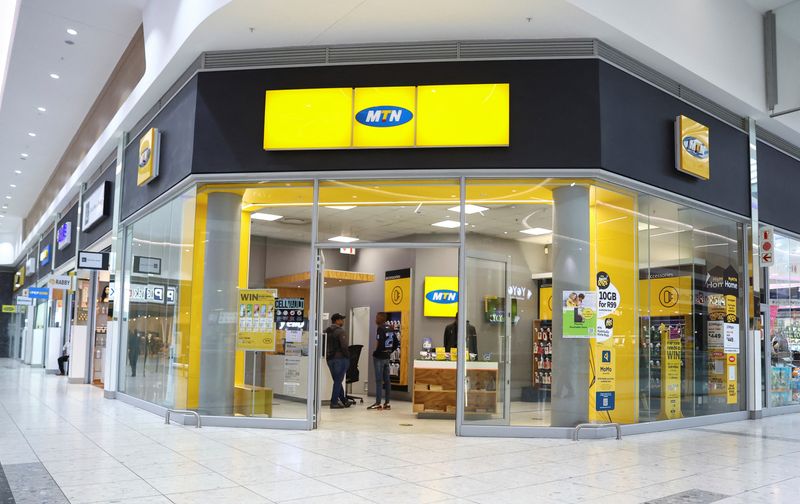JOHANNESBURG (Reuters) - MTN South Africa and MTN GlobalConnect, in partnership with a consortium, have landed a 45,000 kilometre subsea cable in South Africa, part of plans to build a subsea network to connect African countries to Europe and the Middle East.
Africa's big economies have a fast growing population of internet users, with growth fuelled by rapidly expanding mobile broadband networks and affordable smartphones.
But the continent still lags behind the rest of the world in internet connectivity.
"Data traffic across African markets is expected to grow between four and five fold over the next 5 years, so we need infrastructure and capacity to meet that level of growth and demand," MTN Group Chief Executive Ralph Mupita said in a statement.
The subsea cable project, called 2Africa which will go live in 2023, aims to build subsea cable infrastructure which will directly connect countries around the African coast to Europe and the Middle East.
MTN subsidiary MTN GlobalConnect said the landing for the cable was in Yzerfontein and Duynefontein, in the Western Cape province of South Africa and the subsea cable system will support the western and eastern sides of Africa once complete in 2023 and 2024 respectively.

Subsea cables are the backbone of the internet, carrying 99% of the world's data traffic.
The consortium includes MTN GlobalConnect, China Mobile (NYSE:CHL) International, Meta, French telecoms company Orange SA (NYSE:ORAN), Telecom Egypt, Vodafone (NASDAQ:VOD), Mauritius-based infrastructure provider WIOCC and Saudi Arabia's center3.